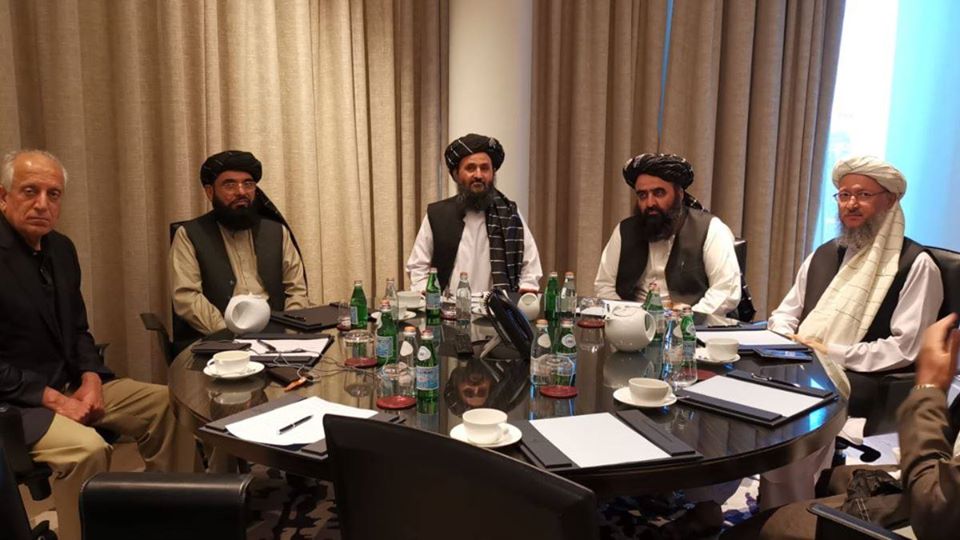US peace envoy Zalmay Khalilzad and Gen. Austin S. Miller, the commander of US and NATO forces in Afghanistan, on Monday met with a Taliban delegation led by the deputy leader of the group Mullah Baradar in Qatar and discussed the US and Taliban agreement. The meeting was announced by the Taliban on Twitter, and Khalilzad’s trip to Qatar was confirmed by a press release from the US State Department.
“They talked about complete implementation of the agreement as well as delay in the release of the prisoners. Violations of the agreement and other issues and ways of their solutions were also discussed,” said Suhail Shaheen, a Taliban spokesman in Qatar.
In the meantime, US Department of State on Monday in a statement has confirmed Khalilzad “departed on April 12 for travel to Doha. In Doha, Ambassador Khalilzad will meet with Taliban representatives on April 13 to discuss current challenges in implementing the US-Taliban Agreement.”
Based on the US-Taliban peace agreement, 5,000 prisoners of the group should be released by the Afghan government, and 1,000 prisoners should be released by the Taliban, to pave the way for intra-Afghan negotiations.
Recently, Zabihullah Mujahid, a Taliban spokesman, responded to the first group of prisoners released by the Afghan government, calling the freed detainees “unidentified.”
The Afghan government has so far released 361 Taliban prisoners from Bagram prison, says Javid Faisal, a spokesman for the Office of the National Security Council.
As per President Ghani’s decree, said Faisal, “releases will continue across other prisons to free a total of 1,500 as part of our efforts to advance peace and fight COVID19.”
On Sunday, the Taliban released 20 government prisoners, the group tweeted.
Khalilzad in a tweet welcomed the prisoner releases by both the Afghan government and Taliban.
He says that both sides should “accelerate efforts” to meet targets of the US-Taliban agreement because “potential for COVID-19 outbreaks in prisons poses a real threat.”
Before the release, a Taliban team tasked with witnessing the process and verifying the prisoner list had reportedly left Kabul over disagreements with the Afghan government about the planned release.













